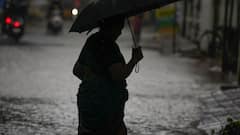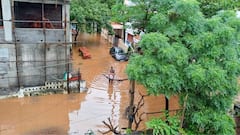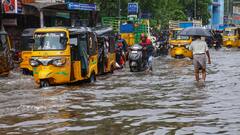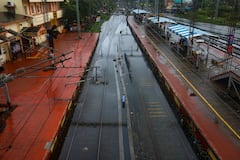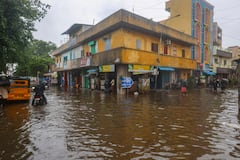Delhi AQI In 'Severe' Category First Time This Winter Rings Alarm Bells In National Capital
Other cities where AQI remained in the "very poor" category include Amritsar, Bikaner, Jind, Panipat, Rohtak, Noida, Gurugram, Chandigarh, Ghaziabad, Panchkula, Ujjain, and Meerut, among others.

For the time this winter season, the air quality in Delhi reached the "severe" category on Wednesday, November 13, with the city waking up to a thick smog blanket. According to the Central Pollution Control Board's (CPCB) real-time data at 4 PM, Delhi's average Air Quality Index stood at 418.
Though the air quality at 9 AM was reported at 366 under the "very poor" caetgory, it plunged further to the severe category as the pollution levels continued to worsen with each passing hour.
Other Indian cities where AQI remained in the "very poor" category include Bhiwani, Ballabgarh, Amritsar, Bikaner, Jind, Panipat, Rohtak, Bhiwadi, Noida, Gurugram, Chandigarh, Ghaziabad, Panchkula, Ujjain, and Meerut, among others.
Of the 36 monitoring stations in Delhi, 30 reported air quality in the 'severe' category, according to the Central Pollution Control Board. As of 5 PM, the AQI at stations in Delhi which recorded "severe" air quality are:
- Anand Vihar at 463
- Bawana at 445
- IGI Airport at 444
- ITO at 440
- Jahangirpuri at 457
- Mundka at 445
- Najafgarh at 443
- North Campus at 440
- Punjabi Bagh at 447
- Pusa at 453
- Wazirpur at 459
In comparison, the national capital's 24-hour average AQI, which is recorded at 4 pm every day, stood at 334 on Tuesday.
Earlier today, Delhi BJP hit out at the Delhi government over the deteriorating air quality in the national capital, demanding closure of all schools for upto Class 5. Delhi BJP president Virendra Sachdeva said that the city has turned into a "gas chamber" as he slammed the AAP-led government for failing to control the pollution levels.
"Delhi has become a gas chamber where everyone is coughing and complaining of trouble in breathing," he said.
The surge in air pollution has led to a gradual rise in patients with respiratory health issues such as asthma and breathlessness. The alarming levels of air pollution particularly impact the elderly and the children.
AQI in the 0-50 range is considered 'good', 51-100 'satisfactory', 101-200 'moderate', 201-300 'poor', 301-400 'very poor', and 401-500 'severe'.
Trending News
Top Headlines













